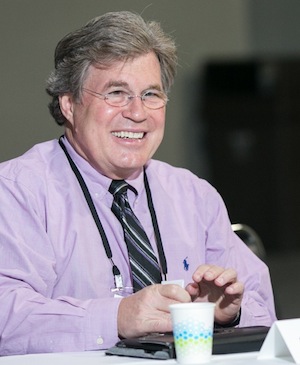AMARILLO, TX – A question that is commonly asked is: “Can a physician sell wound care supplies to his/her Medicare patients?” In answering this question, we need to look at (i) the federal anti-kickback statute (“federal AKS”), (ii) the federal Stark physician self-referral statute (“Stark”), and (iii) applicable state law.
Federal AKS
The federal AKS prohibits a person/entity from knowingly or willfully offering, paying, soliciting, or receiving remuneration in exchange for (i) referring (or arranging for the referral of) patients for items or services covered by a federal health care program (“FHCP”) or (ii) recommending the purchase of an item or service reimbursable by an FHCP.
An argument can be made that the federal AKS does not apply because a “referral” presupposes two parties (e.g., ABC refers to XYZ…and XYZ compensates ABC). And so the argument is that if a physician refers to himself/herself, there are not two parties and, therefore, the federal AKS is not implicated. The physician and his/her attorney will need to determine the merits of this argument.

Stark
While one can argue that the federal AKS does not apply to self referrals, it is clear that Stark does apply to self-referrals. Stark prohibit physicians from referring Medicare/Medicaid patients for designated health services (“DHS”) to an entity with which the physician or his/her immediate family member has a financial relationship…unless a Stark exception is met. While the Stark definition of DHS includes DME, wound care supplies are covered by Medicare under the “surgical dressings” category which, at present, is not included in the Stark definition of DHS. Therefore, Stark does not apply.
Applicable State Law
Every state has its own anti-kickback statute (“state AKS”). State AKSs are similar to the federal AKS. Some state AKSs apply only if the payor is the state Medicaid program. Other state AKSs apply if the payor is the state Medicaid program or a commercial insurer. And other state AKSs apply if the payor is the state Medicaid program or a commercial insurer or a cash-pay patient.
Many states have a physician self-referral statute that is similar to Stark. The physician and his/her attorney will need to determine if the physician’s state has a physician self-referral statute and, if it does, whether the statute applies to the sale of wound care supplies by physicians.
Every state has a Medical Practices Act (“MPA”) that is specific to physicians. The physician and his/her attorney will need to examine the MPA to determine if it addresses the scenario in which a physician sells wound care supplies to his/her patients.
Most states require some type of DME license. DME licensure requirements vary from state to state. As to whether wound care supplies fall within a state’s DME licensure requirements depends on the wording of the state statute.
AAHomecare’s Retail Work Group
The Retail Work Group is a vibrant network of DME industry stakeholders (suppliers, manufacturers, consultants) that meets once a month via video conference during which (i) an expert guest will present a topic on an aspect of selling products at retail, and (ii) a question and answer period will follow. The next Retail Work Group video conference is scheduled for September 10, 2020, at 11:00 a.m. Central. Barry Hassett of CAIRE will address “Co-Op Advertising.” Participation in the Retail Work Group is free to AAHomecare members. For more information, contact Ashley Plauché Manager of Member & Public Relations, AAHomecare ([email protected]).
AAHOMECARE’S EDUCATIONAL WEBINAR
Collaborative Arrangements with Physicians, Hospitals and Other Referral Sources
Presented by: Jeffrey S. Baird, Esq., Brown & Fortunato, P.C.
Tuesday, September 29, 2020
1:30-2:30 p.m. CENTRAL TIME
The lifeblood of a DME supplier is to develop relationships with physicians, hospitals and other referral sources. In so doing, it is important that the supplier avoid violating federal and state anti-fraud laws. This program will discuss the federal anti-fraud laws that suppliers must follow, including the federal anti-kickback statute, the Stark physician self-referral statute, the False Claims Act, the beneficiary inducement statute, and The Travel Act. The program will also discuss examples of state anti-fraud laws. The program will then pivot to a discussion of the types of arrangements that are legally permissible … and those that should be avoided. Examples include Medical Director Agreements, Preferred Provider Agreements, placement of employee liaisons, meals to physicians’ staffs, gifts to physicians, payment to physicians for providing education programs, and loan closet arrangements.
Register for Collaborative Arrangements with Physicians, Hospitals and Other Referral Sources on Tuesday, September 29, 2020, 1:30-2:30 p.m. CT, with Jeffrey S. Baird, Esq. of Brown & Fortunato, PC.
Members: $99
Non-Members: $129
Jeffrey S. Baird, JD, is chairman of the Health Care Group at Brown & Fortunato, PC, a law firm with a national health care practice based in Texas. He represents pharmacies, infusion companies, HME companies, manufacturers and other health care providers throughout the United States. Baird is Board Certified in Health Law by the Texas Board of Legal Specialization, and can be reached at (806) 345-6320 or [email protected].


